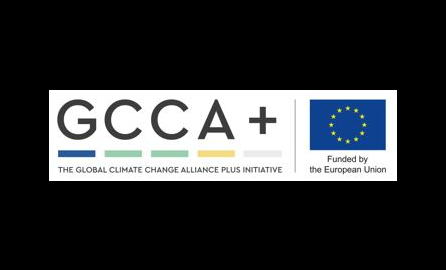Partnership: Pacific
Overview
Pacific Island countries are highly vulnerable to the adverse impacts of climate change. Many countries in the region have extensive low-lying areas, which are vulnerable to climate variability, extreme whether events, and accelerated sea level rise. In addition to high vulnerability, the regional also has low capacity to adapt to climate change, making the impacts of climate change a serious development challenge for the region.
In the ACP Group of States, all fifteen of the Pacific countries are Small Island Developing States, and they are recognized as severely impacted by climate change. The GCCA Intra-ACP Programme dedicated 8 million euros to a four-year programme with the University of the South Pacific (USP) to address climate change in the Pacific ACP States. The programme began in 2011 and ended in mid 2015. It was implemented through the USP Pacific Centre for Environment and Sustainable Development (PACE-SD) and the Secretariat of the Pacific Regional Environment Programme (SPREP).
Objective
The overall objective of the programme is to develop and strengthen the capacity of ACP Pacific countries to adapt to the impacts of climate change. The specific objective is to improve the level of understanding of climate change in the region through formal and informal trainings, on the ground adaptation activities, and applied research.
The programme has three major components: capacity building, community engagement and applied research.
Key achievements
Capacity Building
- In total, 139 students graduated with the Postgraduate Diploma in Climate Change to date. 15 more are expected to graduate in September 2015
- A total of 22 students have been awarded a Master of Science in Climate Change. 5 are expected to graduate in September 2015
- A total of 2,122 national practitioners in the fifteen countries have been trained in national trainings in the project countries
Community Engagement
- The 8 Cs (Collaboration, Community, Culture, Conduct, Conservation, Commitment, Communication and Confidence) of climate resilience have been incorporated into all community-based trainings
- A total of 44 full Vulnerability and Adaptation Assessments have been completed [hyperlink]
- A total of 44 communities have been selected for participation in the development and implementation of climate adaptation plans in 15 countries
- 4 project countries are in the process of implementing their community adaptation plans, of which 6 countries have successfully completed and handed over their activities to their respective communities
- The Best Practices in the Pacific for Coastal Protection report has been launched and published with a further 5 Best Practices reports for Food, Water, Energy, Disaster Risk Management and Community Adaptation currently been finalized
Climate Services/Applied Research
- About 40 Journals, book chapters and technical reports were published
